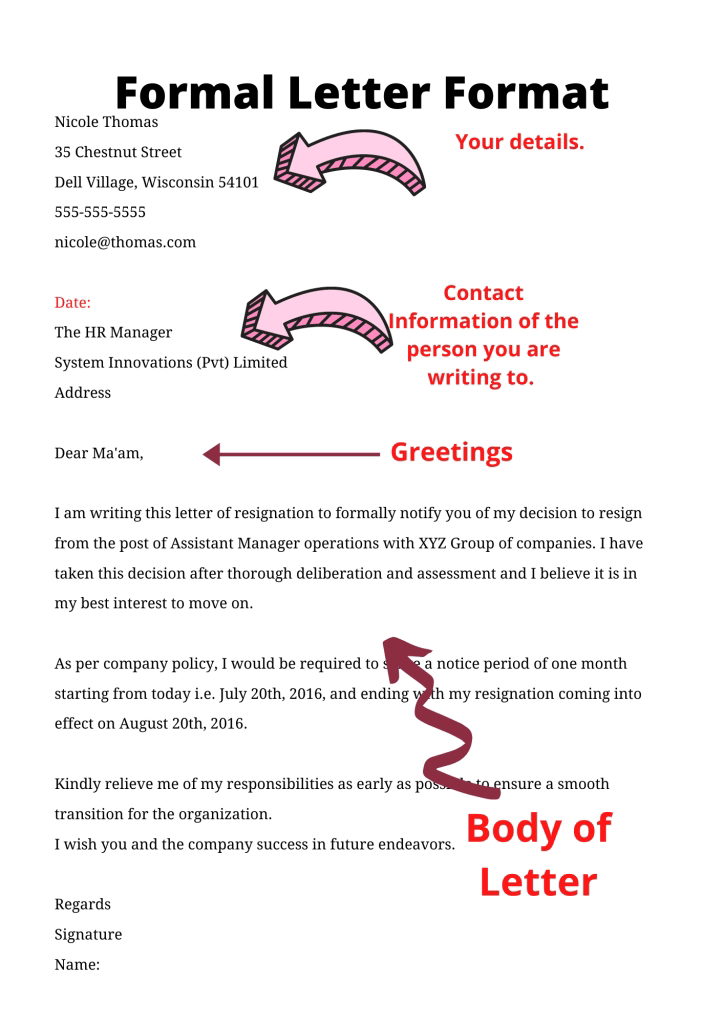Formal letters :-
Formal letters are a means અર્થ of written communication used in professional or official contexts. They typically follow a specific format and tone. Here is a general template for a formal letter:
1. **Your Address**: Start by writing your address at the top of the letter. Include your street address, city, state, and ZIP code. If you're writing from a company or organization, you may include its letterhead.
2. **Date**: Include the date on which you are writing the letter. Place it a few lines below your address.
3. **Recipient's Address**: Include the recipient's name, title, company/organization name (if applicable), street address, city, state, and ZIP code. This information should be aligned to the left.
4. **Salutation**: Begin the letter with a formal salutation. For example, "Dear Mr. Smith," or "To Whom It May Concern," depending on your knowledge of the recipient's name.
5. **Body of the Letter**: This is where you convey your message. Use clear and concise સંક્ષિપ્ત language. Keep the sentences and paragraphs short and to the point. You may want to use simple language and structure your sentences clearly.
6. **Closing**: End the letter with a formal closing, such as "Sincerely,"निष्ठापूर्वक "Yours faithfully," or "Best regards શ્રેષ્ઠ શુભેચ્છા." Be sure to leave space for your signature.
7. **Your Signature**: Sign the letter in the space between the closing and your typed name. If you're sending a digital letter, you can include a scanned or electronically generated signature.
8. **Typed Name**: Below your signature, type your full name.
9. **Enclosures**: If you are attaching any documents or additional materials, mention them at the end of the letter, e.g., "Enclosures: Resume, References."
10. **CC (Optional)**: If you are sending copies of the letter to other people, you can mention "CC" followed by their names.
Remember to keep your formal letters polite, professional, and concise. Adapt the content to your specific purpose, whether it's a job application, complaint letter, business proposal, or any other formal communication.



No comments:
Post a Comment